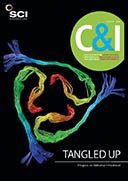Drug discovery company Neem Biotech has been given the green light to develop its lead molecule for treating lung infections in cystic fibrosis (CF) patients. In 2016, the US Food and Drug Administration (FDA) awarded the company’s alternative antibiotic technology Orphan Drug status - a designation given to drug candidates with the potential to treat rare diseases.
Michael Graz, the managing director at Neem, comments, ‘The designation not only has direct implications for the clinical trial – ie more favourable subject size and exclusivity for seven years once the drug is launched – but it has enhanced the company’s profile in the antimicrobial resistance space. In turn this has generated potential investor interest.’
Neem’s technology uses an organo-sulphur small molecule (NX-AS-401), the precursor to which is found in garlic as part of the plant’s defence system. NX-AS-401 disrupts the signalling pathway by which Gram-negative bacteria, such as Pseudomonas aeruginosa responsible for CF lung infections, communicate with each other by so-called ‘quorum sensing’.

In proof-of-concept experiments Neem’s lead candidate has been shown to inhibit quorum sensing in P. aeruginosa. ‘Once this infection takes hold in a CF lung, which frequently occurs at an early age in childhood, it is extremely difficult to cure with existing antibiotics. The consequence of this for the individual with CF is a daily consumption of antibiotics amounting to kg over their lifetime,’ says Graz. Better management of such lung infection would mean less time in hospital to treat flare-ups and a better quality of life for sufferers.
Neem is also looking to expand its technology and has set up two early stage development projects – for the adjunct treatment of other lung infections beyond rare disease, and for infection control in wounds targeting the same species of bacteria.





